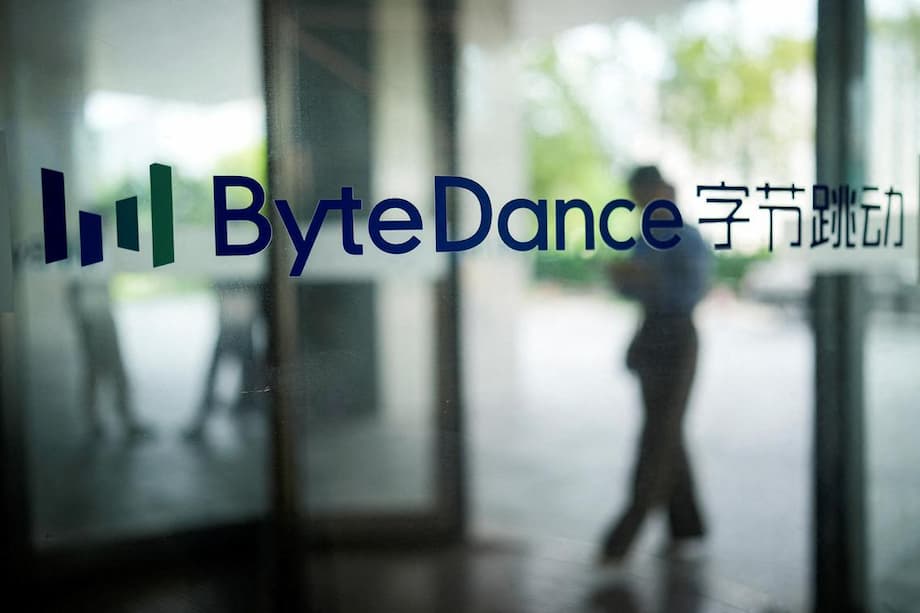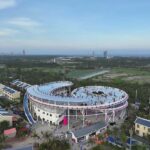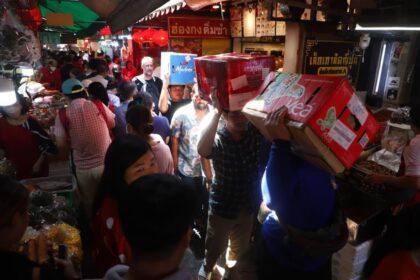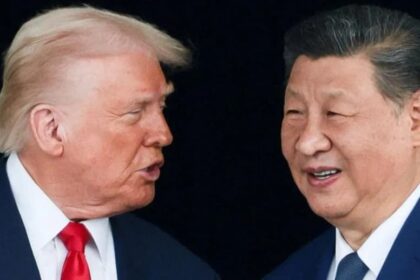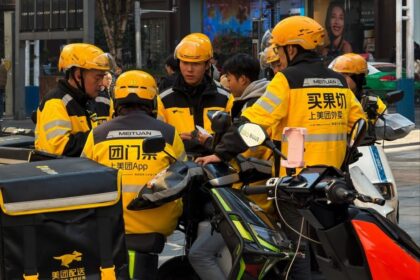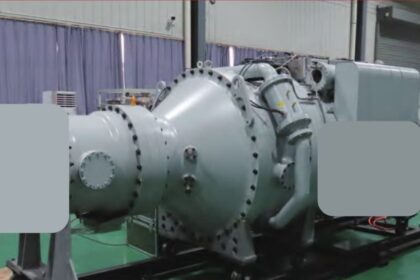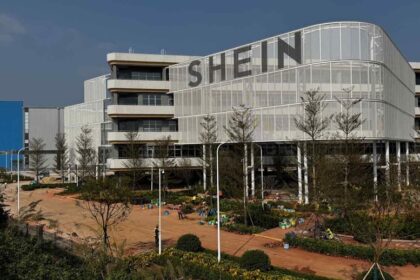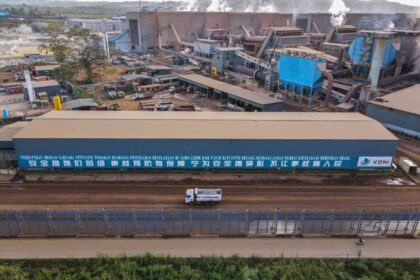A sudden reporting change with global stakes
ByteDance has shifted oversight of parts of its semiconductor design group to a unit in Singapore, a move that many engineers discovered only after their internal profiles were reassigned. Employees in Beijing and Shanghai saw their accounts moved into a new group on the company collaboration system, revealing that they now report to a Singapore entity, according to people who spoke to Reuters. Reports from South China Morning Post and Yahoo Finance indicate that about 1,000 semiconductor staff have been tied to Picoheart, a Singapore subsidiary set up in late 2023.
The company told Chinese media that the primary entity responsible for its chip business has not changed, and that there were no layoffs, spin offs or legal entity changes. Staff were told their contracts, locations, benefits and performance processes remain the same. The change appears to be an administrative reclassification inside Feishu, the enterprise messaging platform known internationally as Lark, rather than a physical relocation.
Singapore has become a key operating base for ByteDance. TikTok chief executive Shou Zi Chew is based there, the company runs large data centers in the country, and Picoheart has drawn attention with semiconductor investments. In March 2024, Picoheart acquired a 9.5 percent stake in InnoStar Semiconductor, a Shanghai based developer of resistive RAM memory, with the aim of supporting the Pico virtual reality business.
The timing intersects with tighter US export controls on advanced chips and manufacturing services. Since late 2023, rules have limited access by mainland China based firms to leading edge chipmaking at Taiwan Semiconductor Manufacturing Co for high performance AI processors. Steering chip design reporting lines to a Singapore unit could make it easier to contract for certain services abroad, especially when the intended use is outside mainland China. Any production or shipment that touches restricted performance levels or returns to China would still face scrutiny under US and allied rules.
What changed for employees
For affected engineers, the most visible change was administrative. Internal directories and Feishu groups now place many chip designers under a Singapore unit, and some accounts were shifted to a separate entity inside the messaging system. Staff were informed that roles and day to day work remain the same, and that the change would not alter compensation, attendance policies or evaluation processes, according to accounts shared with regional outlets.
The employment framework is complex. Public corporate records described by South China Morning Post and Yahoo Finance show that contracts for chip staff are managed by multiple entities linked to Picoheart. In Beijing, FutureMark manages agreements and oversees affiliated units in Xian and Shenzhen. In Shanghai, Shanghai Shuangyushu Technology handles contracts, along with a Hangzhou branch. Picoheart took control of FutureMark last year and of Shuangyushu in August, creating a network of entities under the Singapore subsidiary’s umbrella.
- The team count tied to Picoheart is around 1,000, according to SCMP and Yahoo Finance
- Feishu directories were updated, and some accounts moved into the Singapore entity
- Contracts, benefits and performance reviews were unchanged, according to staff briefings
- No layoffs or spin offs were announced
The reclassification does not imply that engineering teams are leaving China en masse. It aligns reporting and contracting under a Singapore structure while work continues across labs in Beijing, Shanghai, Shenzhen and other cities.
The export control backdrop
Washington’s 2023 updates to chip export rules tightened controls on advanced AI processors and on tools used to produce them. These measures focus on compute performance and interconnect features that enable large scale AI training. They aim to limit access by entities in mainland China to the most advanced processors and to the leading edge manufacturing services that produce them. TSMC, the largest contract manufacturer of chips, has been subject to these rules when evaluating orders connected to China based firms or high risk end uses.
How the thresholds shape access
The rules consider a chip’s compute density and the bandwidth it can move between processors, since dense arrays of powerful chips plus fast interconnects are what fuel large model training. If a chip’s performance exceeds thresholds or if it is paired with wide interconnect networks, it may become restricted for China end users. That pushes many China based buyers toward reduced performance variants or toward domestically made parts that are less capable for training.
Why a Singapore structure may matter
When a buyer is domiciled outside mainland China, a foundry or chip vendor can evaluate requests under a different set of risks. If the chips are destined for data centers in Singapore or other permitted locations, and the specifications sit within allowed limits, procurement is more feasible. If the chips will be shipped back to China or will support restricted end uses, the controls apply regardless of where a contracting entity sits. This is why a Singapore reporting line could help with some orders, but it is not a blanket solution to export hurdles.
Inside ByteDance’s custom chip push
ByteDance is building custom silicon to cut dependence on external suppliers and tune performance for AI services. The company has explored an advanced AI processor with Broadcom that sources said would be made at TSMC, although ByteDance does not currently outsource manufacturing there. Custom parts are part of a wider plan to support recommendation engines, content understanding, ads systems and creator tools across TikTok, Douyin and other platforms.
Today, ByteDance’s released chips handle inference, which is the stage where trained models run to produce outputs. Inference needs are large, but the compute is less intense than training vast models. Rivals such as Alibaba and Baidu have shipped more silicon across both training and inference, while Huawei has pushed its Ascend line inside China. ByteDance is still in the early stages, with a portfolio that includes video decoding chips, networking silicon and a dedicated team for AI applications.
What an ASIC is and why companies build them
An application specific integrated circuit is designed for a narrow set of tasks. Unlike general GPUs, an ASIC can strip out unused features and pour transistor budget into operations that matter most for a company’s workloads. For large scale recommendation and generative AI services, an ASIC can lift throughput and lower power and cost once volumes reach scale. The trade off is less flexibility when models or frameworks change.
- Reuters reported recent postings for a small set of chip roles, including an AI chip team
- Yahoo Finance, citing company hiring pages, described hundreds of open roles tied to AI processors, data processing units and RISC V work across several Chinese cities
- ByteDance has poured resources into its AI stack, including the Doubao app, large models and the Volcano Engine cloud division
- A Financial Times report in January said ByteDance planned to invest more than 12 billion US dollars in AI this year, including about 40 billion yuan for chips in China and 6.8 billion US dollars for overseas compute
Picoheart, InnoStar and the VR link
Picoheart’s stake in InnoStar underscores a second track in ByteDance’s chip strategy, one that supports devices as well as data centers. InnoStar specializes in resistive RAM, a memory technology that can retain data at low power and with fast write endurance at mature process nodes. The investment aims to secure a supply path for memory used in Pico headsets and accessories.
Corporate records show that Picoheart and an affiliated ByteDance entity together hold more than 13 percent of InnoStar. That aligns with a pattern of targeted semiconductor investments to back both VR hardware and AI infrastructure. A stable memory pipeline helps Pico compete in a market where Apple and Meta set the pace on device performance and integrated software.
Why Singapore is a strategic base
Singapore offers ByteDance a deep pool of technical talent, strong intellectual property protections and stable regulation. The country is a regional data center hub with extensive cloud capacity, reliable power and strong connectivity. ByteDance already runs large scale infrastructure there, and senior leadership for TikTok sits in Singapore. Those factors make the city state a natural place to coordinate chip design, procurement and vendor relationships.
Singapore’s neutrality and business links to the United States, Taiwan and China help with complex supply chains. Foundries, packaging houses and equipment vendors work with multinational clients through Singapore based teams. That network can shorten negotiation cycles for non restricted parts and can simplify compliance checks for permitted deployments in the region.
What this means for AI training and inference
The company’s AI needs are split between training and inference. Training requires the most advanced processors and networking to speed up multi week runs for large models. Inference scales out across many data centers to serve billions of daily requests for recommendations, search, moderation and creative tools. ByteDance’s current silicon can support the inference side, and the company continues to buy GPUs for both domestic and overseas capacity.
By aligning chip design oversight with Singapore, ByteDance could place a portion of high end compute outside mainland China while maintaining inference scale inside the country with chips that comply with local availability and export rules. Custom accelerators for inference can trim energy use and free up scarce GPUs for training. That approach lowers unit cost for core services and reduces reliance on a single supplier.
Risks and scrutiny
The strategy will draw close attention from regulators and suppliers. Export controls rely on end user and end use checks, and on knowledge of who ultimately controls an entity. A Singapore based arrangement does not remove those checks. Foundries and chip vendors must evaluate orders against US and partner rules, and shipments that return to China or enable restricted activities will be subject to licensing or denial.
There are internal risks as well. Managing teams across multiple entities is complex. Clear decision rights, budgets and tool access are required to avoid delays. Hiring across borders can strain compensation bands and career frameworks. None of these are unique to ByteDance, but they influence how fast the company can bring a new chip family from design to tape out and finally into production.
What to watch next
- Corporate filings in Singapore, including any new Picoheart subsidiaries or leadership changes
- Vendor signals from foundries and packaging providers about new customers or design wins linked to Singapore
- Hiring patterns that move chip design, verification and physical design roles toward Singapore or other overseas hubs
- Evidence of first tape outs for ByteDance training grade chips, or a follow on collaboration with Broadcom
- Procurement of GPUs and accelerators for overseas data centers, which would confirm the dual track compute approach
- Any updates from US authorities on export rules or guidance that affect orders by affiliates of China based companies
The Bottom Line
- Many ByteDance chip designers learned they now report to a Singapore unit after internal directory changes
- SCMP and Yahoo Finance report about 1,000 employees tied to the Singapore subsidiary Picoheart
- ByteDance told Chinese media the change was an internal update with no layoffs or spin offs
- The shift aligns with efforts to manage tighter US export rules on advanced AI chips and manufacturing services
- US measures since late 2023 restrict mainland China firms from accessing leading edge TSMC production for high performance AI processors
- ByteDance is developing custom chips, with current releases focused on inference and a reported collaboration with Broadcom for an advanced processor
- Picoheart invested in InnoStar to support memory supply for Pico VR devices
- Singapore’s data centers, talent base and regulatory stability make it a logical coordination point for chip design and procurement


